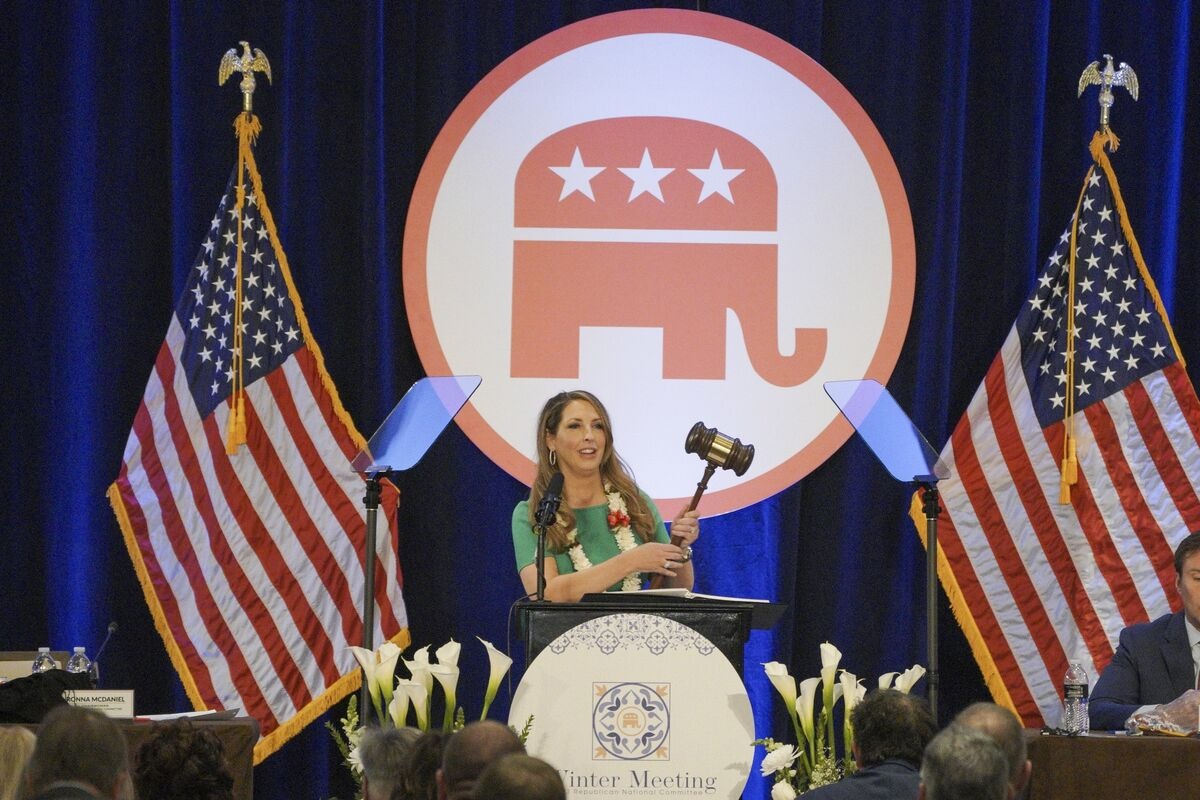Ronna McDaniel, the chairwoman of the Republican National Committee (RNC), has reportedly offered to step down from her position after the upcoming South Carolina primary. This move is said to pave the way for former President Donald Trump to install his preferred party chair.
The development comes amid heightened tensions between Trump and the RNC, with the former president expressing dissatisfaction with the committee’s finances and its handling of the 2020 election.
Sources have disclosed that McDaniel has discussed her resignation plans with Trump. While an RNC spokesperson, Keith Schipper, stated that “nothing has changed,” emphasizing that a decision would be made after the South Carolina primary, insiders suggest that McDaniel’s offer to resign indicates the strain in her relationship with Trump.

RNC Chair, McDaniel (Credits: KTVZ)
The New York Times initially reported on McDaniel’s potential departure, revealing that tensions between Trump and the RNC have escalated recently, leading to speculation about a change in leadership. In response to McDaniel’s offer, Trump’s team has reportedly suggested potential replacements.
Among the names floated are Michael Whatley, the chairman of the North Carolina Republican Party, and Drew McKissick, the chairman of the South Carolina Republican Party. Both have strong ties to Trump, and their inclusion in discussions signals Trump’s intention to influence the selection of the new RNC chair.
While Trump can endorse a candidate, the final decision rests with the RNC committee members. Joe Gruters, a Florida state senator and longtime Trump supporter, is also under consideration.
However, the dynamics of this potential change in leadership highlight the unusual circumstances surrounding McDaniel’s resignation, given her status as one of the longest-serving RNC chairs in recent history.
Trump’s dissatisfaction with McDaniel stems from concerns over the RNC’s financial performance and its perceived lack of support during the 2020 election.
Under McDaniel’s leadership, the former president believes that the committee could have done more to contest his claims of widespread voter fraud. The strained relationship became more evident during the RNC’s winter meeting in Las Vegas, where Trump hinted at the need for changes within the committee.
The prospect of Trump influencing the RNC before officially becoming the Republican nominee is unconventional. Traditionally, a presidential nominee assumes greater control over their party’s national committee, but Trump’s early exertion of pressure on McDaniel reflects a unique situation.
The failed attempt to pass a resolution naming Trump the presumptive nominee at the winter meeting underscores the ongoing power dynamics within the RNC. McDaniel’s decision to engage in a two-hour meeting with Trump at Mar-a-Lago indicates her responsiveness to the pressure and desire for a cordial discussion.
However, Trump’s subsequent announcement on social media about making decisions after the South Carolina Primary clearly outlines his intentions to play a more direct role in shaping the RNC’s future.
The fallout from these developments may significantly impact the committee’s leadership and dynamics in the lead-up to the 2024 presidential race.























